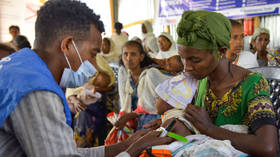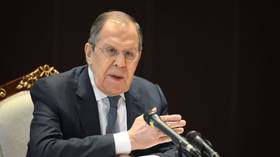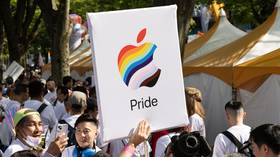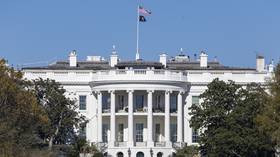Life finds a way: Microbes on ISS mutating to survive the void of space
Good news for future astronauts and budding space tourists alike: spacebound microbes aren’t mutating into the humanity-threatening, antibiotic-resistant superbug form as many had previously feared.
A new study by researchers at Northwestern University found that microbes on board the ISS mutated different genes than their Earthbound counterparts, either as part of natural selection or a possible mutation.
“There has been a lot of speculation about radiation, microgravity and the lack of ventilation and how that might affect living organisms, including bacteria,”said Northwestern’s Erica Hartmann, who led the study.
Also on rt.com Mutant superbugs menace future space station expeditions – NASA“These are stressful, harsh conditions. Does the environment select for superbugs because they have an advantage? The answer appears to be ‘no.’”
Hartmann is an assistant professor of environmental engineering in Northwestern’s McCormick School of Engineering. Her work investigated how bacterial life fares in orbit which will provide early, invaluable insights into how microbes and humans will interact on longer distance voyages through space, like on repeated trips to the moon, Mars or beyond.
“People will be in little capsules where they cannot open windows, go outside or circulate the air for long periods of time,” said Hartmann. “We’re genuinely concerned about how this could affect microbes.”
Or maybe how the microbes, in turn, might affect the humans on board.
The ISS is already home to thousands of microbes, transferred via the astronauts or cargo. In fact, some superbugs were already transferred there by SpaceX so we can predict mutations back here on Earth. No outbreaks or worrying contaminations have been reported… so far.
Also on rt.com SpaceX to deliver superbug to ISS – so we can kill it faster in futureHartmann’s team used publicly available data on ISS microbes to compare strains of Staphylococcus aureus (which lives on human skin and contains the tough-to-treat MRSA ‘superbug’) and Bacillus cereus (likely a control, as it lives in soil and poses no major threat to human health) on the ISS to those back here on Earth.
“It looks like bacteria are adapting to live, not evolving to cause disease,” said Ryan Blaustein, a postdoctoral fellow in Hartmann’s laboratory and the study’s first author. He added:
We didn’t see anything special about antibiotic resistance or virulence in the space station’s bacteria.
While this is good news for astronauts, the study’s authors are still wary of the implications for the slowly-growing space tourism industry.
“Astronauts are exceedingly healthy people. But as we talk about expanding space flight to tourists who do not necessarily meet astronaut criteria, we don’t know what will happen. It’s like when someone coughs on an airplane, and everyone gets sick.”
Think your friends would be interested? Share this story!














